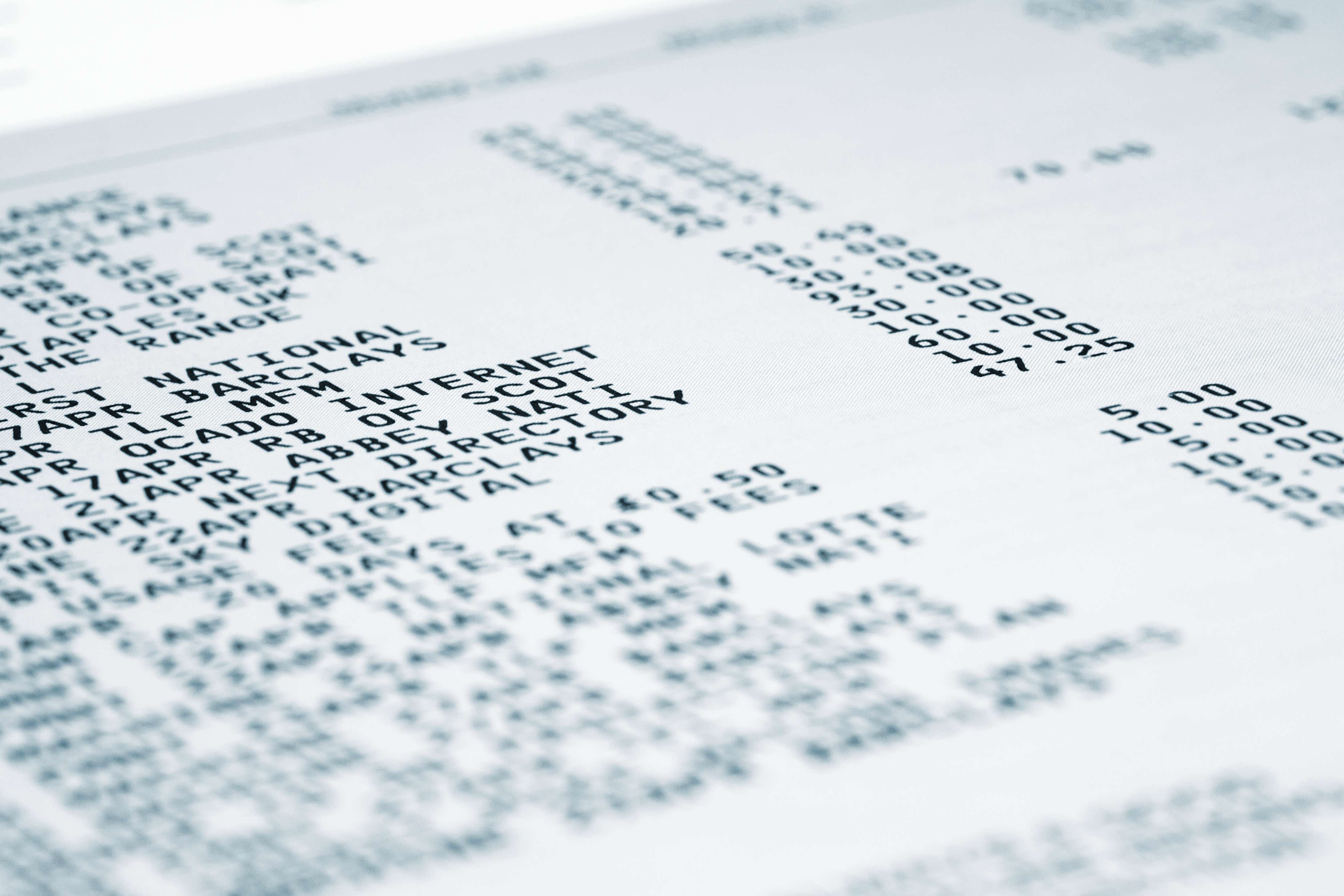- Uswitch.com>
- Current Accounts>
- Are there any risks in opening a joint account?
Are there any risks in opening a joint account?
A joint account is a rite of passage for many couples. Rather than quibbling over every shopping bill you just put your money into the same account.

When you open a joint account with a partner or spouse you are linking your finances together, so it's a good idea to think through the options before taking this step.
Compare credit cards with Uswitch
Compare all sorts of credit cards from 0% cards to rewards, balance transfer to cashback cards.
Ways to use a joint account
A joint bank account can be convenient if you're sharing the cost of rent or mortgage and associated costs, including Council Tax plus buildings and contents insurance
Household bills and direct debits for utilities, broadband, and subscriptions can automatically leave your account with you having to sort out who owes what
You may also use your joint account to pay for the weekly food shop, household goods and for meals out together
You need to decide if your personal spending - clothes, hobbies, nights out with friends, presents and gifts - all come out of the joint account or whether you keep individual accounts too
Not everyone who is in a relationship might want to share a bank account with their partner at all. And some may want to share only for limited expenditure. There are a number of considerations to think through before you pool your finances and open a joint bank account.
How will you fund the joint account?
Some people choose to pay all their income into their joint account. This means their salary or other income is paid directly into the account they share with their partner.
This is the closest financial relationship you can have – all your money goes into one account and you sort out your bills and other expenses, plus your personal spending from that one account.
Another option is to open a joint bank account into which you each pay a set amount of money each month, but you keep the rest of your finances separate. The amount you each pay into the joint account might not be equal shares – it might depend on what each partner earns. This is something you will need to discuss with your partner before you open the joint account.
Couples can then each keep their own separate bank account in their own name, and arrange for a monthly direct debit to be paid from their single bank account into their joint bank account to cover the agreed bills.
Pros and cons of joint accounts
Advantages of a full joint account
Having a full joint account where you both pay in all the income each month simplifies your finances because you can pay for everything from a single account.
You can each have a debit card linked to the account and recurring expenses like mortgage repayments and bills can go out of your bank account each month.
Your finances are transparent. Nothing is hidden. You both know how the account is doing and what has been spent and where. If you need to economise or want to save for a holiday, for example, you can easily see areas of spending that could be trimmed.
Over a lifetime together when one person may earn more than other, one may take a career break or change careers and set up a business, or have to care for someone, a full joint account can help cover those eventualities.
Disadvantages of a full joint account
It's rare for a couple or partners to each earn the same amount of money. It is likely that one person will earn more – so you need to be sure that the person earning the greater salary or income is happy for their income to go straight into the account to be used for shared purposes.
It’s hard to keep secrets from your partner - that special birthday treat or anniversary gift will be a challenge to keep as a surprise.
Often one person within a couple will be more extravagant than the other, or have a more expensive hobby such as motorcycling or horse-riding, and this may cause conflict when the finances are there for both to see.
if you open a joint account and one of the account holders spends the money and goes overdrawn, you're jointly responsible for paying back the debt.
Advantages of a joint bank account with separate finances
Where you're unsure about whether you want to share your finances fully, or one of you earns a lot more than the other, or you have differences over spending priorities, this could be an option.
The advantage is that you keep your financial independence, and one person doesn't have to ask the permission of the other to spend money on hobbies or treats.
You can choose how much of your household spending to pool - just the rent or mortgage, with the Council Tax and house insurance too, with all utility bills on top, or with some additional shared items such as the weekly supermarket shop for household essentials.
Disadvantages of a joint bank account with separate finances
Where you're moving money between different accounts it can be hard to keep track of what you're spending.
You will need to agree who tops up the joint account if you get unusually large bills or direct debits go up. And you need to decide who is going to pay for big items such as holidays or a new washing machine or car.
If one partner spends a lot each month and the other prefers to save, the frugal partner might end up feeling resentful. You may not feel you are really sharing equally your finances and working as a real partnership.
Setting boundaries:
It's a good idea to discuss how money from the joint account is spent on separate treats and hobbies. Does one partner need to ask before they make a significant purchase? How are you going to set a balance between spending and earning if different partners have different priorities?
Also consider what will happen in the future. It is possible that the person earning the most now, won't always be the highest earner. Unemployment, illnesses, accidents or chosing to go self-employed or start your own business are all possibilities.
Maybe one of you will stop work to raise a family or look after an elderly relative. Would a joint account be helpful in these circumstances?
You can see that opening a joint account, and deciding how you will use your joint account, is more complicated than simply sharing the bills. As a couple or partnership you need to be clear about spending boundaries and costs.

My partner wants to open a joint account. What are the risks?
A joint account demonstrates a level of trust between a couple, playing an important emotional role. A joint account may also mean you can borrow more, as your income and savings are pooled.
A creditor can look at your joint savings and offer you more money than if you were looking to borrow by yourself, making some life choices, like getting on the housing ladder, more attainable.
Unfortunately, the convenience of a joint account also comes with risks.
First, there is trust. A joint account gives your partner access to your money, so your relationship should be on a secure footing.
Should one partner choose to withdraw or spend a large amount of money you have no legal ground to get it back if it's a joint account.
There's another risk around the amount of savings you might have in a joint account. Everyone's savings are protected by the Financial Services Compensation Scheme (FSCS scheme) in the UK up to a maximum of £85,000 per provider. However, those limits don't double if you have a joint account, so you’d need to open a second joint savings account with another provider if you reached the protection threshold.
What's more, savings tax limits are per person, so your tax-free savings allowance will be more complicated if you choose to pool your resources.
When it comes to day-to-day spending a joint account can be very convenient, but when it comes to saving larger amounts you need to manage your accounts carefully.
How does a joint bank account affect my credit score?

There are pros and cons of having a joint bank account when it comes to your credit score, which is a measure of how likely lenders are to approve your applications for credit like mortgages, loans and credit cards.
When you open a joint account with someone, you create a financial link. If you both have a good credit score, this can improve your chances of being approved for a mortgage. However, if one of you has a poor credit history, this could drag down the other person’s score.
How do I open a joint bank account?
Opening a joint bank account is straightforward and similar to opening a bank account in your own name. You can do it online or in a branch. You will need ID and other documents including proof of address.
Remember that if you open a joint account and one of the account holders spends the money and goes overdrawn, you're jointly responsible for paying back the debt.
So while a joint account can be a good idea, you do need to think through the options carefully before going ahead.
Check your eligibility for credit cards
See if you are likely to get a credit card - it's quick, free, and won't affect your credit score.


